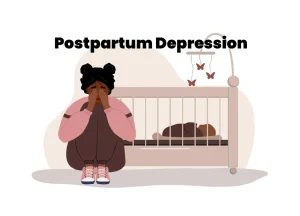Mental health isn’t always easy to talk about, especially with someone you love. You may worry about being misunderstood, judged, or even becoming a burden. But when it comes to healthy relationships, discussing mental health issues with your partner is not just important, it’s essential.
Whether you’re opening up for the first time or supporting your partner through tough moments, these tips for having an open mental health conversation can help you both feel seen, supported, and safe.
1. Start With Trust, Not Pressure
Choose a calm moment to talk, not during a heated argument or high-stress situation. You could say something like, “There’s something personal I’d like to share. Is this a good time to talk?” This signals that the conversation matters and gives your partner room to prepare emotionally. Avoid making it one-sided or turning it into a dramatic reveal. Think of the conversation as an invitation to deepen emotional intimacy, not just to “offload” something heavy on your partner or friend.
2. Normalize the Conversation
Mental health is health. It’s okay to say, “I’ve been feeling overwhelmed lately,” or “I think I might be dealing with anxiety.” In having conversations about our mental health, it is good to use simple honest language. This makes it easier for both of you to engage without shame. When talking to your partner about mental health, remember: you don’t need a diagnosis to justify your feelings. If something doesn’t feel right emotionally, it deserves attention, just like a physical symptom would.
3. Reduce Shame with Empathy
If your partner opens up to you, resist the urge to fix or minimize. Instead of saying, “It’s not that bad,” try, “That sounds really tough. I’m here for you.” Empathy isn’t about having all the answers, it’s about showing that you care. This helps reduce the internal shame that often comes with mental health struggles, especially in romantic relationships.
4. Set Healthy Boundaries
Support doesn’t mean carrying each other’s pain alone. Knowing your limits is part of maintaining emotional balance. If you’re struggling too, it’s okay to say, “I want to support you, but I also need time to take care of my own mental health.” This keeps the relationship strong while also encouraging both partners to seek external support, like therapy, counseling, or safe spaces to vent.
5. Focus on Solutions Together
You don’t have to figure everything out in one chat. After opening up, think about ways to support each other going forward. Can you:
- Check in weekly with a “How are you feeling, really?
- Try couples therapy or mental health coaching
- Create no-judgment zones for venting after tough days
- Learn coping skills together (like mindfulness or stress management techniques)
Shared healing strengthens your bond. It says, “We’re in this together.”
6. Keep the Conversation Going
Mental health isn’t a one-time topic. Just like discussing finances, plans, or parenting, mental wellness should be part of your ongoing conversations. Even short check-ins can mean the world. A quick “How’s your head today?” text shows care without pressure. It keeps the door open.
Talking about mental health doesn’t make your relationship weaker, it makes it more real. When you create space for honesty and emotional safety, you build a deeper, more meaningful connection. So, whether you’re the one struggling, supporting your partner, or both, know that your mental health matters, and love can be one of the safest places to start the healing journey.



